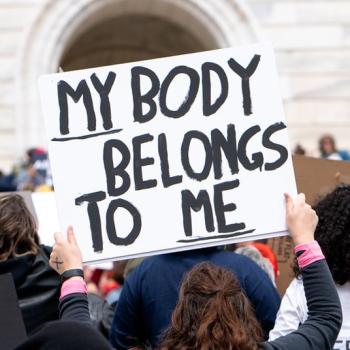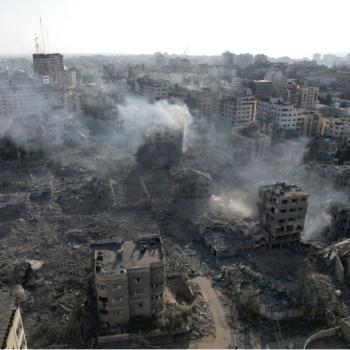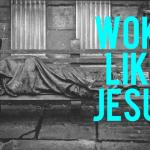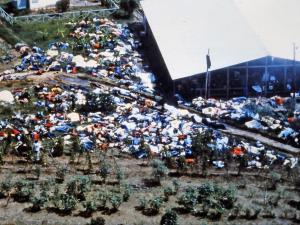
No one ever intentionally joins a cult. Most of us seek community by joining fitness classes, book clubs, organizations such as the local PTA or a political party, or even institutions like churches.
Although Jim Jones may have been the infamous Peoples Temple cult leader who orchestrated hundreds of his follower’s deaths in Jonestown, Guyana, he was also the pastor of the Peoples Temple Christian Church. Not only was Jones a well-respected ordained minister of a major Christian Evangelical denomination, Peoples Temple remained a church in good standing up to their very last day.
Today, many Christians still put their faith in leaders and institutions. Though you and I may not actually be members of a cult, to forget the tragedy of Jonestown is to ignore the dangers of our present world and to become vulnerable to powerful people who could seek to harm others by exploiting your faith.
“Many More Must Drink…”
He commanded them all to die.
His excited, drug-addled stutter echoed from the crowded open-air pavilion across fields of cutlass beans into the shadows of the surrounding wilderness. “Mother, mother, mother, mother, mother please. Mother, please, please,” he begged. “Please don’t…Don’t do this! Don’t do this! Lay down your life with your child.”
In that moment 45 years ago on November 18th, 1978, Rev. James Warren Jones was strategically calling for all the children in his congregation to be murdered first.
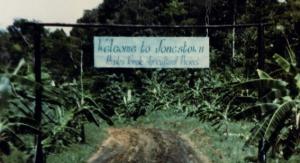
Carved deeply into the unforgiving South American jungle of Guyana, the isolated compound was named Jonestown after the founder, leader, and pastor of Peoples Temple. Although it was deemed an “agricultural project” by the church, Jonestown had been an escape for Jim Jones and became a gulag for everybody else.
Some of Jonestown’s residents had already followed Jones all over the United States for decades. Others had literally been picked up out of the gutter and loaded onto a church bus, and many were recruited by friends, family members, and other loved ones.
Jones’ message had been a progressive gospel of social justice, but he lured Evangelicals with healing services, Bible-thumping revivals, and traditional churchy elements like pulpits, prayers, and preaching.
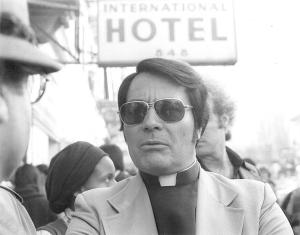
Using his power to humiliate, divide, and conquer, Jones controlled members of all ages, genders, and orientations with sex—often without consent. He staged robberies, healings, suicides, assassinations, and resurrections, arranged marriages, plotted divorces, bribed politicians, suppressed witnesses, infiltrated the meetings of his enemies with covert spies, and cultivated relationships with national figures even including the First Lady of the United States.
And every week, his churches were full of worshipers eager to hear the life-giving message Rev. Jones would deliver from behind his dark sunglasses.
After years of increasing scrutiny from outsiders, Jones finally achieved his secret decades-long goal of amassing 10 million dollars and staged a gradual exodus of willing church volunteers to escape with him to Jonestown.
Twenty months later, the approximately 900 lives gathered in the Jonestown pavilion on that fateful night had already been worn down by protein-deficient diets, manual labor, ten-hour workdays, and broken by beatings, electrical shocks, and forced drugged restraint. Between Russian language lessons, Mein Kampf studies, and incoherent harangues by Jones over the loudspeakers, Peoples Temple members had become emotionally codependent with their leader.
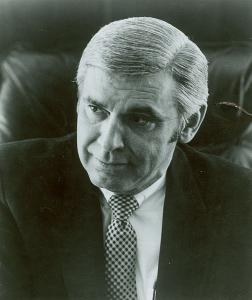
Earlier that same day, U.S. Congressman Leo Ryan along with an NBC News camera crew and a delegation of print journalists and Concerned Relatives had visited Jonestown, and several residents chose to depart with them. But as rainclouds were rolling in over the compound, Jones had declared, “All is lost.”
On a nearby airstrip, Ryan and four others were shot and killed by gunmen dispatched by Jones. Meanwhile, in the capital city of Georgetown, four other members were slaughtered by knife in a murder-suicide ordered by Jones over the radio.
As darkness began to fall and Jones took the stage, Jonestown’s diverse residents were collectively experiencing the concluding moments of their lives.
“We can’t go back,” Jones said. “They won’t leave us alone…There’s no way, no way we can survive.”
As the madman yelled, the entire population of Jonestown was forced at gunpoint to participate in a perverse mockery of the Lord’s Supper, receiving a sacrament of death in remembrance of their evil messiah. Surrounded by gunmen, mothers and fathers walked in procession to the front of the pavilion where several of Jones’ acolytes stood waiting with hundreds of syringes filled with a mixture of animal tranquilizer and cyanide-laced Flavor-Aid.
Of course there were people who protested they weren’t ready to die, but as they argued with Jones, armed gunman shouted them down.
On a surviving audio tape, one of Jones aides spoke into a microphone to be heard over the rising swell of weeping children. “It’s not painful,” she said, as syringes squirted the deadly drink into the open mouths of the 36 infants who had been born in Jonestown. “They’re just crying because it tastes bitter.”
According to eyewitnesses, moments after victims swallowed the poison, they began convulsing uncontrollably, a mixture of saliva, blood, and vomit bubbling from their mouths. Gunshots rang out in sparse, random clusters amongst panicked screams, and then Jones began directly addressing the situation.
“Children,” he pleaded. “It will not hurt. If you’ll be—if you’ll be quiet. If you’ll be quiet.”
But the fighting and cries only grew louder, so Jones raised his voice even more. “Adults, adults, adults. I call on you to stop this nonsense,” he shouted. “I call on you to quit exciting your children, when all they’re doing is going to a quiet rest.”
The senior citizens had been staged next in line, and Jones called out, “Where’s the vat, the vat, the vat?”
At that moment, his aides carried out to the table at the front of the pavilion paper cups and a metal vat of the same crimson poison that had just been used to murder all the children.
By now bodies both tiny and large littered the ground, some still, others feebly clawing for air.
Those who would not drink were either forcibly injected with the lethal concoction or died from gunshot wounds. Most of the bodies laid face down. Many of the victims were holding one another as they died.
Jim Jones’ final recorded words were not spoken to anyone left alive in Jonestown, but to people like us. “We didn’t commit suicide,” he said. “We committed an act of revolutionary suicide protesting the conditions of an inhumane world.”
During the protracted aftermath of identification and removal, many of the bodies were found two and three layers deep in and around the pavilion. A handwritten note was also discovered, and said in part:
“To whomever finds this note
Collect all the tapes, all the writing, all the history. The story of this movement, this action, must be examined over and over. It must be understood in all of its incredible dimensions…
We did not want this kind of ending…
Many of us are now dead…
The sky is gray. People file by us slowly and take the somewhat bitter drink. Many more must drink…
Let all the story of this Peoples Temple be told. Let all the books be opened. This sight, O terrible victory…
If nobody understands, it matters not. I am ready to die now. Darkness settles over Jonestown on its last day on Earth.”
Nothing to Fear…
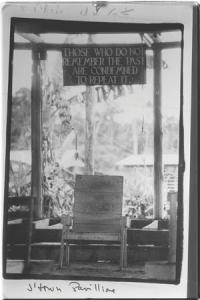
On the stage in Jonestown behind where Jim Jones delivered his deadly final sermon hung a sign which read, “Those who do not remember the past are condemned to repeat it.”
Today, the world in which we live challenges us as Christ-followers to take to heart Jesus’ warning as he commissioned the Twelve:
“I am sending you out like sheep among wolves. Therefore be as shrewd as snakes and as innocent as doves.” (Matthew 10:16, NIV)
Make no mistake, there are evildoers who are like wolves masquerading as sheep, manipulating the faith and trust of people such as you and me. Christians are generally even more vulnerable because we look for the good in others and expect our faith to be rewarded, even if it is unknowingly misplaced.
Just as Jim Jones used his charismatic charm from a position of power to lure saints and sinners alike, today powerful leaders play a pivotal role in the actions of their followers. Like Jones, such manipulators hold sway over their supporters through persuasive rhetoric repeated over a compelling and sometimes false narrative.
January 6, 2021, a mob numbering in the thousands answered Donald Trump‘s call to action following his defeat in the 2020 presidential election. They assembled in Washington D.C. to champion his false claim that the “radical left” had stolen the election. During a political rally, Trump urged attendees to go to the U.S. Capitol building and “fight like hell” or else “you’re not going to have a country anymore.”
Like Jim Jones decades earlier, Donald Trump spoke with the authority of a radical outsider who had nonetheless been supremely chosen to protect the disenfranchised. Both men wielded their political influence to perpetuate false narratives that emboldened their supporters. Misinformation was a key factor in both cases, provoking collective reactions and lethal results.
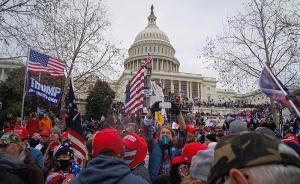
Following Trump’s speech, over 2,000 of his followers overcame security barriers and stormed the Capital building intending to overturn the results of the 2020 presidential election. Armed protesters ransacked the complex, destroying property and sending lawmakers into hiding. Some faced off in confrontations against law enforcement officers as they searched for members of Congress to abduct and assault. Outside, the rioters raised a gallows, and began shouting for Vice President Mike Pence to be hanged.
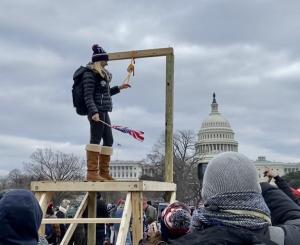
More than 100 members of law enforcement were injured, and 5 individuals died as a result of the attack.
As Christians, we must consider the responsibility of those in power and the potential consequences when their influence goes unchecked.
With both the Jonestown tragedy and the January 6 Capital attack, manipulation of fear was another shared catalyst. Both Trump and Jones spoke of unparalleled consequences using fear as a tool to control and mobilize followers.
Biblical teachings about fear and discernment emphasize the importance of maintaining a sound moral compass in the face of manipulation, and it’s a message Christians should already know. 2 Timothy 1:7 says, “For God has not given us a spirit of fear, but one of power, love, and sound judgment.”
The Other Cup
The Jonestown tragedy serves as a stark reminder of the dangers inherent in unchecked power, us-versus-them mentalities, manipulation through religious beliefs, and psychologically aggressive messaging within religious institutions. To prevent such catastrophes, we as Christians can learn several crucial lessons.
- There is a need for transparency and accountability within religious organizations. The unchecked authority wielded by Jim Jones in Jonestown highlights the potential for abuse when leaders operate without oversight. Implementing systems for accountability, democratic decision-making processes, and regular audits could help prevent the concentration of power in the hands of a few individuals.
- Fostering a sense of community that does not rely on an “us versus them” mentality is vital. Jones manipulated his followers by creating an isolated community that viewed the outside world with suspicion. We must embrace inclusivity, tolerance, and understanding, discouraging an exclusive mindset that isolates anyone from the world we have been sent to love.
- Christians must never use other’s faith or beliefs as tools for control. Jones exploited the trust placed in him by his followers and used religious doctrines to manipulate and dominate. Emphasizing critical thinking, encouraging questioning, and providing education about healthy spiritual practices can help individuals distinguish between genuine faith and manipulative tactics.
- Psychologically aggressive messaging, such as fear-based tactics or coercive persuasion, must be condemned. Instead, we should prioritize ethical communication that respects the autonomy and well-being of all creatures. Mental health resources and open dialogue can counteract the negative effects of coercive messaging.
Jonestown is more than a cautionary tale. People were murdered. Lifelong believers, professionals, the unemployed, poets, scientists, teachers, students, married couples, teenagers, infants, the elderly, individuals both rich and poor, orphans, and multiple generations of families were robbed of the rest of their lives, and we have been deprived of the transformation any and all of them could have made upon our world.
By learning from the mistakes that led to such a devastating outcome, you and I can be used to transform the world within the reach of our arms into a community filled with genuine spirituality, peace, respect, tolerance, affirmation, and a resolve to respond not in fear, but with Christlike love towards others.
It’s a cup we have already been offered.








